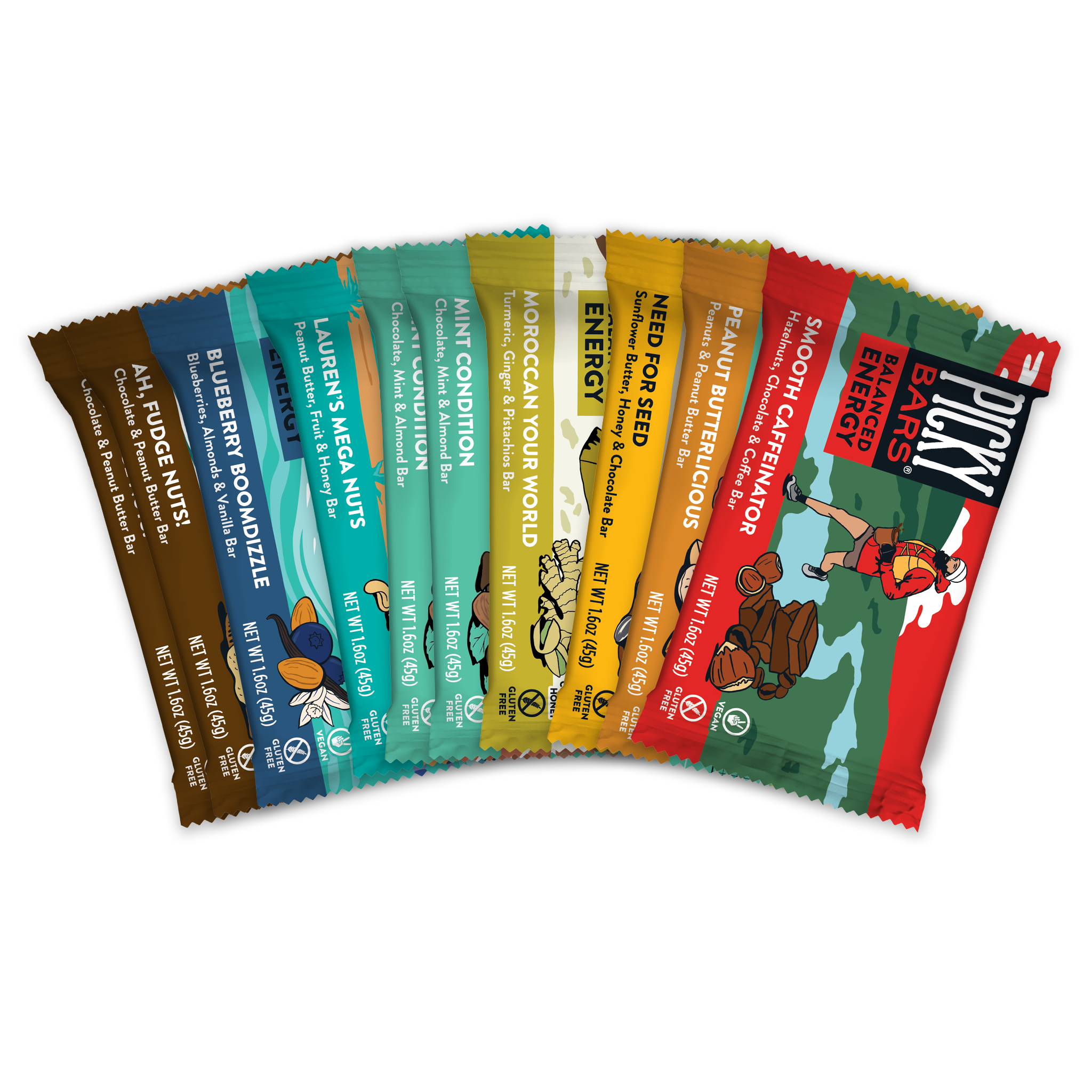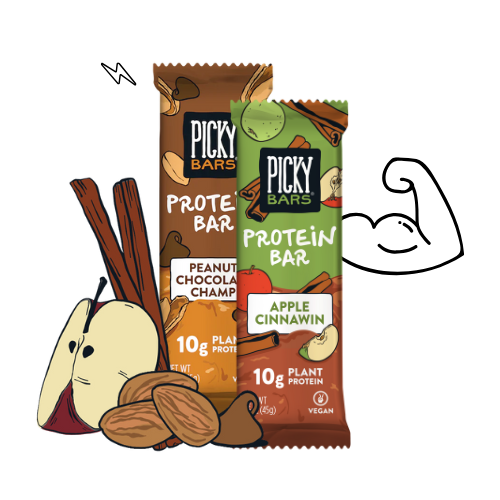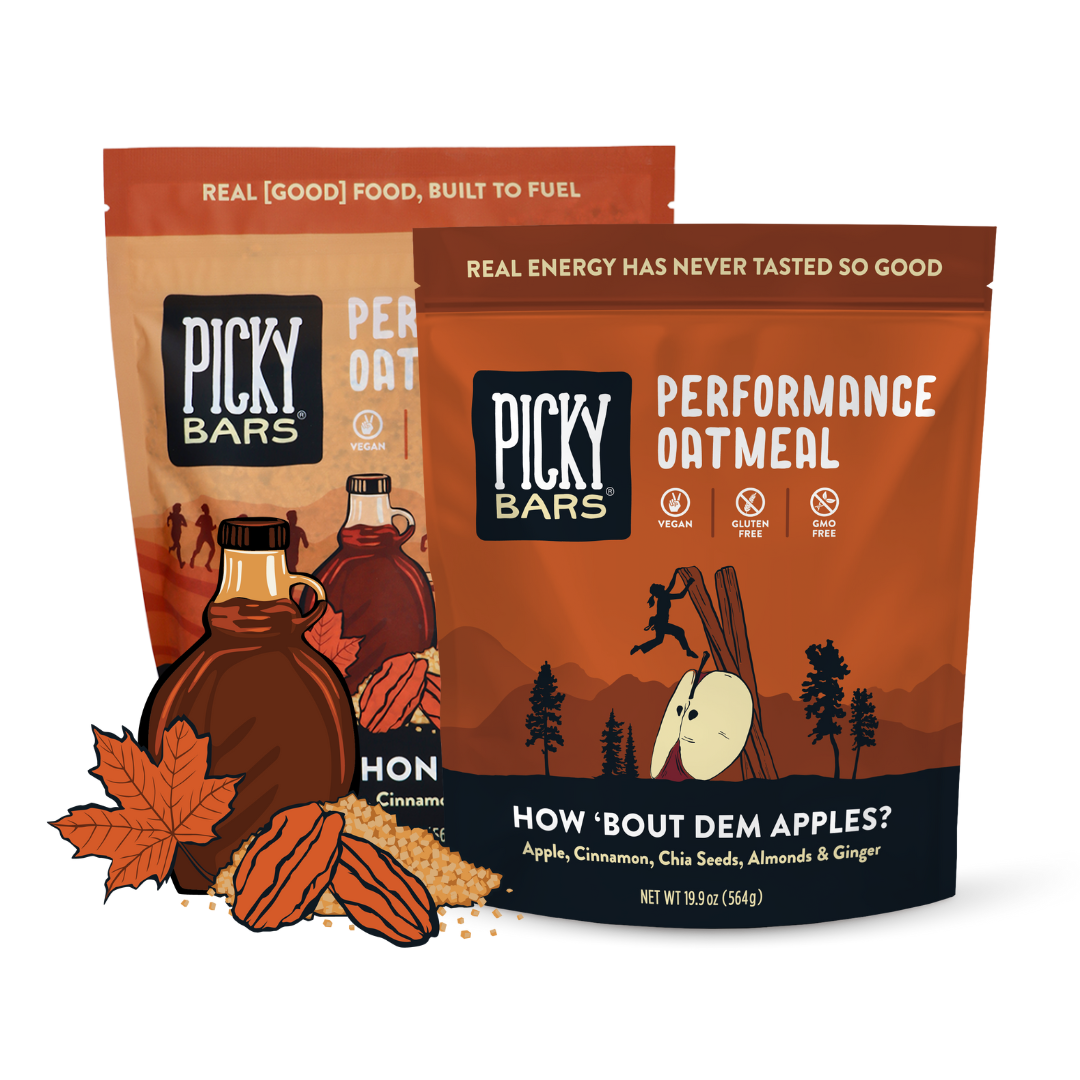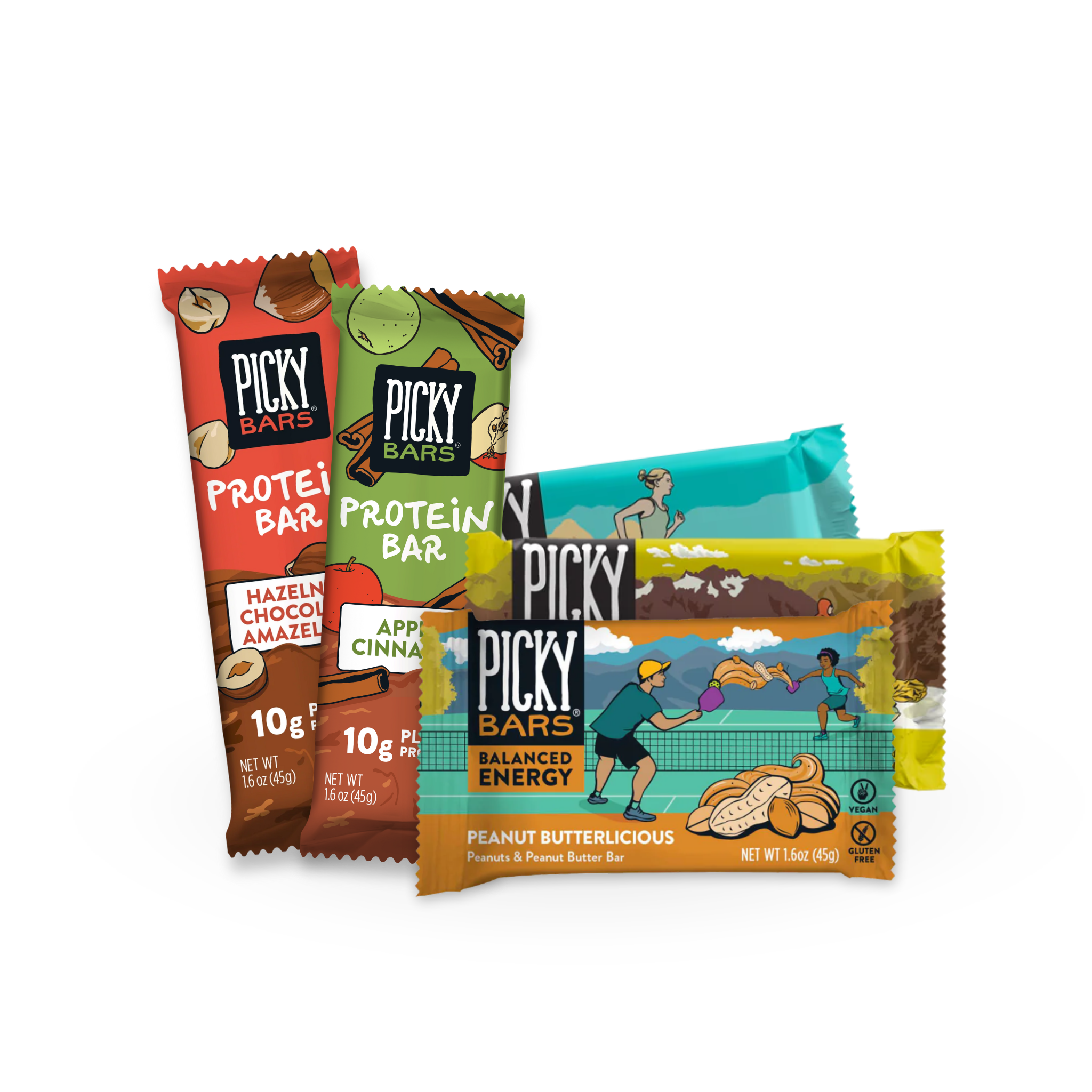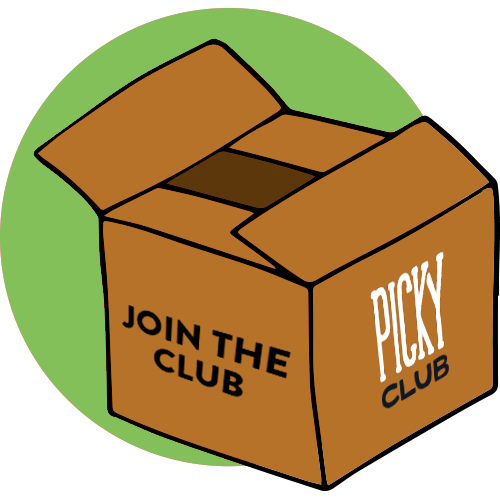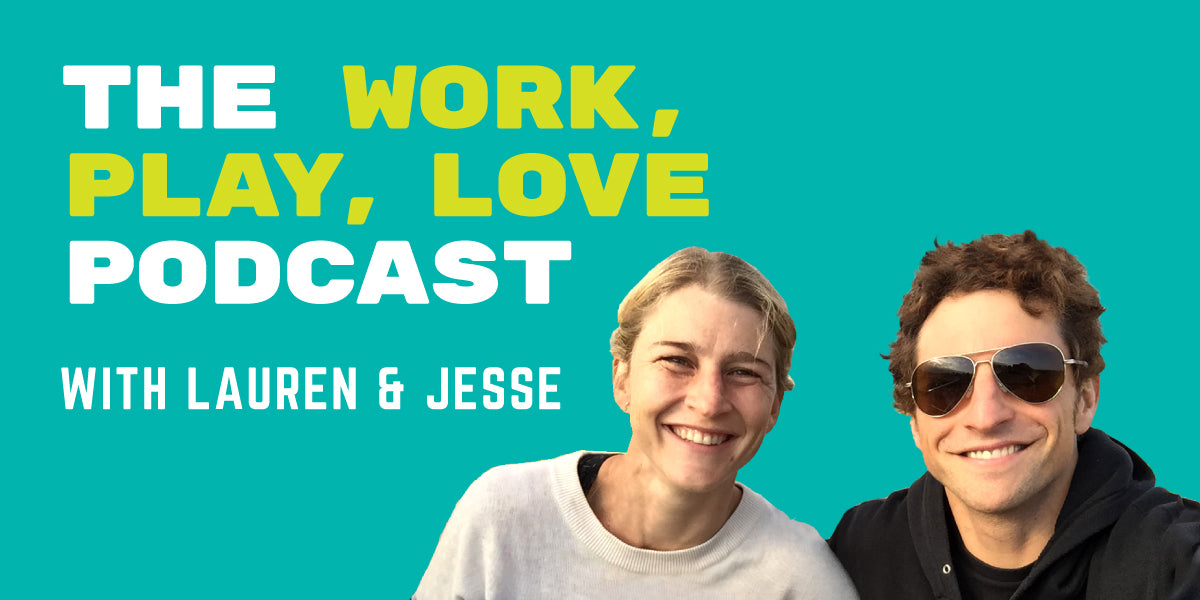

· By Sarah Conklin
42: Alcohol, Low Iron, Running + Pregnancy
Juggling work-life balance can be a real three-ring circus, which Lauren & Jesse know first hand. Led by listener questions, the Work, Play, Love Podcast is all about sports, biz, and family. [ASK YOUR QUESTION]
42: Performance and Alcohol, Iron Levels and Fatigue, Career Motivation, Running While Pregnant
iTunes | Spotify | Google Play | Stitcher
Description:
This episode of Work Play Love is sponsored by Jaybird. For a limited time, Work Play Love listeners can get a pair of Jaybird RUN XT wireless sport headphones for 20% off. Head over to Jaybird’s website and use this discount code at checkout: workplaylove20
Jesse’s training up for the Wings For Life World Run, where he plans to smash out a 5K. The catch? He’s doing it on crutches. He talks a bit about the race while Lauren makes some predictions about Jesse overdoing it. Meanwhile, Lauren’s just back from the Eugene Half where she ran a 1:17:27. They talk about how racing as parents has completely changed the pre-race dynamic, and how it’s difficult to take a race seriously while also taking care of the kids. The two also talk about exciting developments at Picky Bars before diving in to your questions. In this episode, Jesse and Lauren cover performance and alcohol, fatigue and iron, maintaining career motivation, and running while (trying to get) pregnant.
Listener Questions, L&J Answers
15:02 - When will Picky Bars Sassy Molassy Granola be in stock?
Sassy Molassy Granola will be in stock *hopefully* on May 20, 2019!
16:08 - How often do you wear your Garmin watches? Do you wear it while swimming?
Wearing a watch at all times can be a nice way to check the time without having to look at (and get totally distracted by) your phone.
In college, Lauren wore her watch 24/7. But these days, she can barely find it to wear for her workouts—which she usually does.
Jesse wears a watch at all times, even when swimming (a tell-tale sign of a triathlete). However, he doesn’t look at the watch during workouts, but likes to wear it because it records the workout data, which he can look at later: hashtag efficient. hashtag triathlete. Boom!
18:50 - I hate hearing my voice on a recording because it sounds different than I think it does in real life. Does it ever get less weird to hear your voices on the podcast?
You’re not alone! Lauren’s never listened to an episode of WPL for this very reason! And Jesse hates the sound of his own voice on recordings, too.
21:26 - When you started Picky Bars, was your intention to use the bars as a post workout recovery snack, or more fuel during training?
Picky Bars were designed to be used in and around workouts. The bars have a balance of carbs, proteins, and fats from specific sources that improve digestibility before, during, or after workouts. And that’s how Jesse and Lauren use them—in and around workouts (and for snacks because they provide a nice energy lift).
The one exception is high-intensity workouts, because your body can’t digest fats and proteins as well during periods of high intensity. For workouts like these, it’s common to switch to a high-sugar source like blocks or gels.
23:28 - I’m usually an empty-stomach runner. Should I be incorporating fuel into my longer runs?
Fueling while running is really important, and so it’s a good thing to practice. Think of it as adding logs to your fire. It will improve performance and help with your recovery. Everyone’s stomach is different, so practice with different types of nutrition and frequency to see what works for you.
Lauren starts using blocks around the 10K mark to get energized, and then takes in more calories every 15-20 minutes after that.
The Main Event
What is your relationship to alcohol? And what are your thoughts around alcohol consumption and performance?
Alcohol impairs sleep and recovery, making it difficult for athletes to get the most out of their workouts. And alcohol certainly does not help your performance. So if you’re going to consume alcohol, do so sparingly, socially, moderately.
While both Lauren and Jesse have eliminated alcohol to prepare for races in the past, they find that having a beer or a drink the night before if they’re in a social environment can counterbalance the stress and intensity of an upcoming race.
How do you deal with the feeling of losing motivation to chase your dreams?
There’s a lot of “follow your dreams” rhetoric out there that’s kind of an extreme reaction to the idea of “working for one company for 40 years.” This comes from a pretty privileged position that isn’t always realistic for everyone. It’s reinforced by social media, which can make people feel guilty about how they feel on their own path.
We say take the pressure off. Don’t let the internet get you down about your job or your dreams. Do some honest assessment. Do some visioning. Stick with it if you feel like it, and it’s ok to pivot if you feel like it, too.
I’m planning a “vision retreat” for my friends. What things do you focus on to help with vision casting and motivation at Wilder Retreats?
At Wilder we try to reconnect with our wilder, more childlike selves. We use running, the outdoors, and writing to more clearly see who we are and re-assess what we’re doing with our lives.
On a retreat with your friends, try to do some things that will help you get back to that child-like self. Be real with each other. Show up. Speak truth without blame or shame about how things really are. If you can create a curriculum and an environment where that’s the basis of everything, the other pieces will start to unfold.
I feel like “career” is no longer “work for 40 years at the same company and get the gold watch.” Instead, it’s more dynamic. Have you felt that dynamism? If so, how have you navigated those feelings?
This is totally true, and the data supports it. More and more people are spending an average of just 4 years at any given job. Jesse has had three different “careers” in the fifteen or so years since graduating college. These shifts in work can be intense.
The way Jesse navigated this was by making a “Lifetime Goal List” soon after he graduated college. Then he prioritized the items on that list and organized them into age brackets. That goal list has acted as a guide for his life since.
As an exercise, try brainstorming a Lifetime Goal List and see if it offers guidance in navigating these career shifts.
What are the best things to do in Bend, OR?
Here are a few great resources for your visit to Bend.
https://www.visitbend.com – lots of great ideas for activities and events happening during your trip.
Virginia Meissner Sno-Park – if you come during the winter time, there’s a ton of great snow-shoeing, cross-country skiing and other activites up at the Virginia Meissner Sno-Park.
The Picky Bars Lifepoints Adventure Guide to Bend, OR – You won’t find a better guide than our Picky Bars Adventure Guide. Check it out for fun outdoor activities, places to nosh, coffee shops, and more.
Wanderlust Tours – Offer some really cool experiences that are really fun for groups visiting town.
I’ve been experiencing deep fatigue beyond what is normal for my lifestyle and training. I recently got labs done and my ferritin level came back at 13. Do you have a brand and form of iron you would recommend? Any tips on supplements or strategies to bring up ferritin levels for athletes?
Lauren looks for ferritin levels of around or above 60 with the athletes she coaches. They test their blood every 6 months or so using the Gold Panel at AthleteBloodTest.com.
Talk to your doctor about supplementation and be open to trying different brands if you find that one isn’t working well.
If you’re feeling fatigued and if your ferritin levels are low, the best thing to do is to rest and take time to recover—especially after periods of intense training. It can take 4-6 weeks of little to no exercise, and up to 2 months of light exercise to help your body recover from big events or training sprints where you’ve pushed yourself to your limits.
Any suggestions about running and training while trying to conceive?
When it comes to having kids and training hard, everyone’s experience is different. Some folks may train and have a difficult time conceiving, while others may not have the same issue. The best thing to do is consult with your doctor, and train to the level you feel comfortable with. You may get pregnant while training, which will change your plans for sure. And if not, you may need to eventually put a timeline on your training, or take a step back from sport so you can take it easy and focus on starting a family.
Follow-ups
1:00.08 Racing while grieving (Episode 41)
I was driving to work listening to episode #41 and couldn't help but tear up hearing about the man who suddenly lost his Dad and was training for Ironman Santa Rosa. Five and a half years ago, I called my Mom to wish her a happy birthday and mentioned that I had just signed up for Vineman 70.3. After chatting with both my parents, they said, "hey, maybe we'll come with you and cheer you on." Four days later, my Mom died very suddenly and unexpectedly after suffering an aortic dissection. In the wake of my Mom's death, I briefly considered scrapping the race (which would occur about 7 months later), but the fact that it had been part of our last conversation nudged me to start training and do the race as planned. My Dad came out for the race as we had discussed, and so did my younger brother and my then-boyfriend, now-husband. The trip ended up being a very healing one for my family. Although I felt sad to not have my Mom there, I felt so loved having the support of "my boys." The race ended up being my slowest 70.3 to date. The run in particular was very hard and emotional. I thought about my Mom a lot while running through the vineyards. It helped a lot during the race to remember how proud of me she was just for *doing* triathlon. She was there for my first ever triathlon - a women's only sprint distance in my home town. When I emerged from the transition area on my bike, she enthusiastically shouted out, "You go, girl!" That moment remains as one of my favorite memories from my triathlon journey. My splits and time at Vineman didn't matter. What mattered was that I kept going and that I got to share the experience with my family. My heart goes out to the person who wrote in. I'm so sorry for the loss of your father. Thanks for letting my share my story.
1:03:10 Post-run no shower (Episode 40)
Shower Pill body wipes are the BEST. Put your hair in a loose braid and dry shampoo before and after. Deodorant spray is clutch too!
Writing in response to the question in episode 40 regarding how to de-stink after a run without access to a shower. I was listening to the podcast as I was doing my lunchtime run and started laughing out loud. I do not have access to a shower so I go to many a-meeting after lunch with a certain glow in my cheeks (picture red) and wonderful slicked back hair (think sweat but masked by a little perfume). As Lauren said, pits and crotch are the most important. I like to call it a French shower -- makes it sound so elegant (and this is actually a term that the French use). It works and nobody has ever complained -- at least to me.
1:04:42 Buying a road bike and getting into cycling for the first time (Episode 40)
As someone who was also super uncomfortable on a bike when I started riding, I have a couple of additional tips:
- Definitely follow Lauren's advice and spend some time with folks at your local bike shop exploring different entry-level options, and while you're there, ask about their bike fit services. Many shops actually offer a complementary fit session if you buy a bike, or will do a quick fit for around $50-100. Definitely worth the money to make sure you're set up in a position that feels comfortable and safe (you're not straining your back to reach your brakes, for example).
- I think maybe Jesse's forgotten that you can race a bike without aerobars ;-) They're super fun but also take some getting used to. If you're new to cycling I might skip them for your first race; you definitely won't be the only casual age-grouper out there without them.
- If you can, I'd highly recommend riding the course you'll be racing on so you know what to expect in terms of corners, terrain, etc. Even if you can't ride the actual course, you can map it out and then try to practice on similar features. I might favor some intentional practice descending and turning over trying to get out on group rides, which can get a little squirrely and unpredictable. GOOD LUCK and have fun!!!
con't
Jesse recommended that this woman purchase a pair of tt bars to use during her race even though it’s only a 17 mi. bike leg. I am training for my first Olympic distance and have just been using a road bike. I was under the impression that tt bars were not important or relevant until much longer distance races.
con't, more
About the question on buying a bike for a first triathlon - I also love trying to shop local, but I've had some less than stellar experiences at bike shops. Mainly someone trying to up-sell me to a super fancy racing bike as opposed to the entry level bike I was looking for. Another great place to look is REI if you are a member or if that is an option for you. The great part is that as long as the bike isn't on sale, you earn dividends on it which means that could help you purchase other bike accessories or parts later on! Great way to earn back 10% if you're making a purchase anyway!
Pedicures (Episode 40)
I am a runner (50 miles/week) and a pedicure enthusiast! Wooooo! Bi-weekly pedicures keep my toenails from getting too banged up, thick, ingrown, etc. Regular pedicures are like preventative treatment for some runner's feet woes. They also help keep my feet from getting hobbit-y and weird. A little nail polish never hurt anybody! Cute feet can still run fast! Flip flop season is upon us! Air those piggies out with pride!
As always, submit your work/play/love question at pickybars.com/workplaylove - Thanks for listening!

[ PAST EPISODES + DESCRIPTIONS ]

